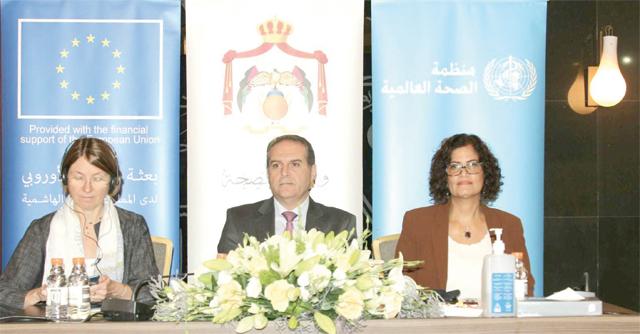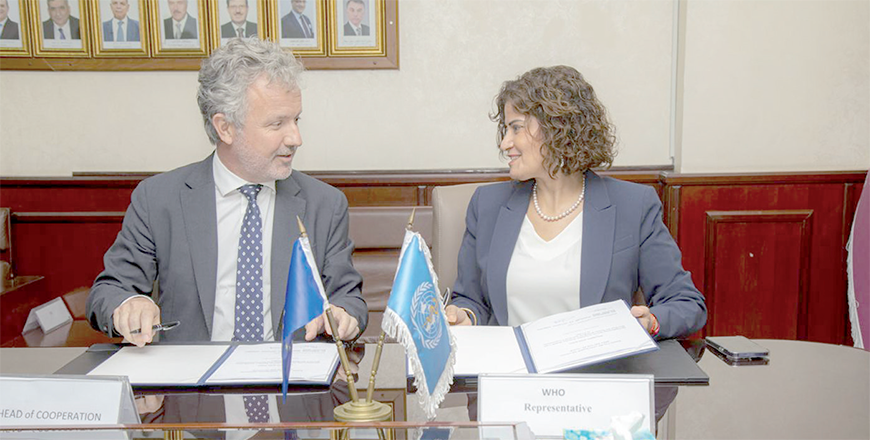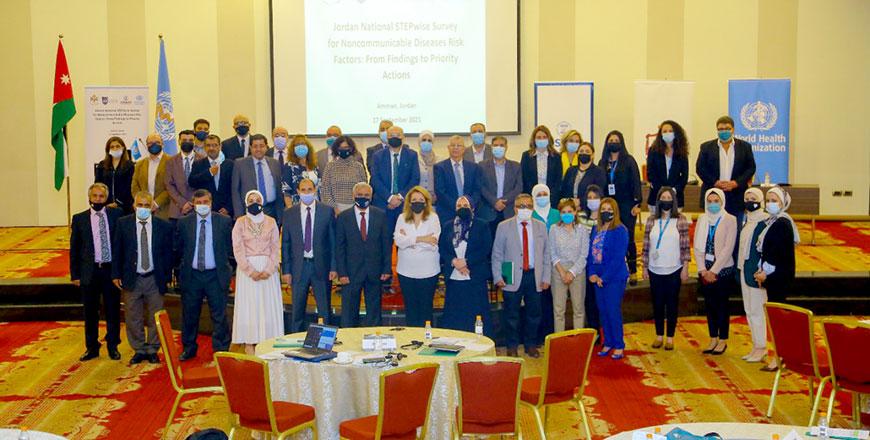You are here
Study launched to evaluate primary healthcare system
By JT - Jun 20,2022 - Last updated at Jun 20,2022

Health Minister Feras Al Hawari and guests during the launch of a study evaluating the primary healthcare system in Jordan on Monday (Petra photo)
AMMAN — Health Minister Feras Al Hawari on Monday launched a study evaluating the primary healthcare system in Jordan, which was implemented by the World Health Organisation (WHO) in partnership with the Middle East Network for Community Health and local experts, with the support of the EU.
The minister said that the study is part of a larger effort to strengthen the Kingdom's healthcare system and provide "real evidence" of the “relentless effort” to build a healthy society based on the foundations of prevention, early diagnosis and continuous medical support for patients, the Jordan News Agency, Petra, reported.
He noted that Jordan has made "significant efforts to deliver excellent healthcare services" to all citizens by developing a network of comprehensive, primary and subsidiary health facilities across the Kingdom.
Hawari said that the evaluation was based on a methodology that used four studies and resulted in dozens of recommendations, praising WHO's cooperation in preparing the study and strengthening the Kingdom's health system.
WHO representative in Jordan, Jamila Raibi, said that the evaluation aimed to identify priority interventions to strengthen Jordan's primary healthcare system.
She added that primary healthcare is a people-centred approach to health that prioritises prevention over treatment, and that it is the most efficient, fair, and successful strategy, stressing that prevention may reduce the burden of disease and may minimise overcrowding in hospital emergency units.
The WHO official noted that Jordan is committed to realising the Sustainable Development Goals and was a signatory to the 2018 Salalah Declaration, which reiterated the commitment to achieving universal health coverage by building equitable, resilient and sustainable health systems.
Raibi added that the organisation conducted a number of studies in collaboration with the Middle East Network for Community Health and local experts, including evaluating service availability and readiness in the targeted facilities, as well as assessing the quality of services from the perspective of service recipients.
The study recommended greater governance of health funding, service delivery, human health resources, information systems, medicine and technology.
Related Articles
AMMAN — Minister of Health Firas Hawari attended on Monday the signing ceremony of the funding agreement provided by the European Union (EU)
AMMAN — Through funding from the EU Regional Trust Fund in Response to the Syrian crisis (Madad Fund), the World Health Organisation (WHO) a
AMMAN — The Jordanian Ministry of Health, in collaboration with the World Health Organisation (WHO), on Monday held a session to discuss the
















